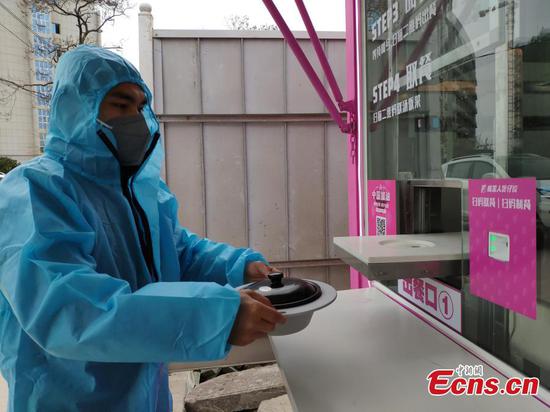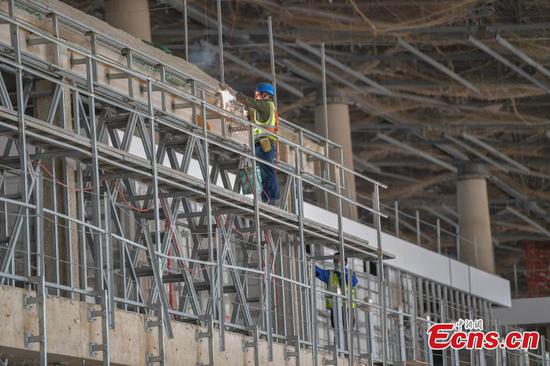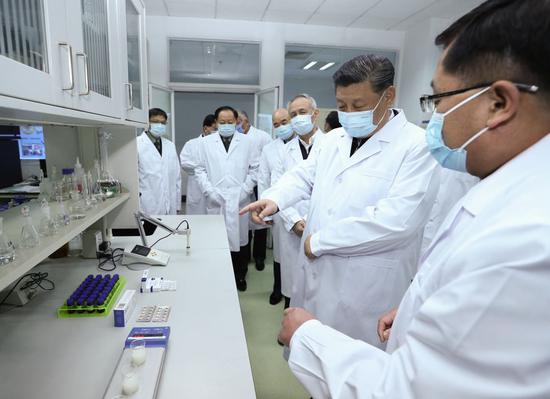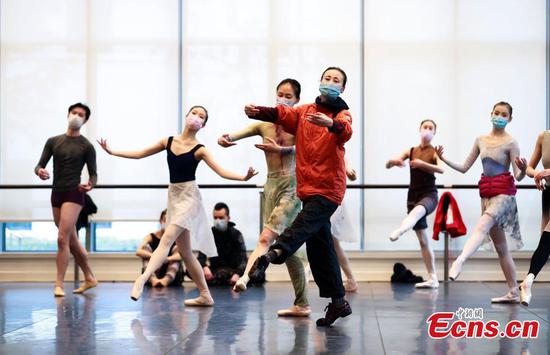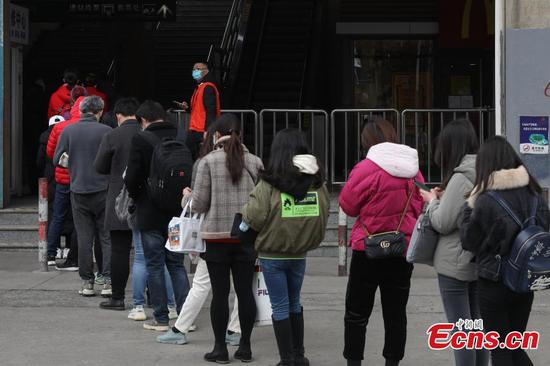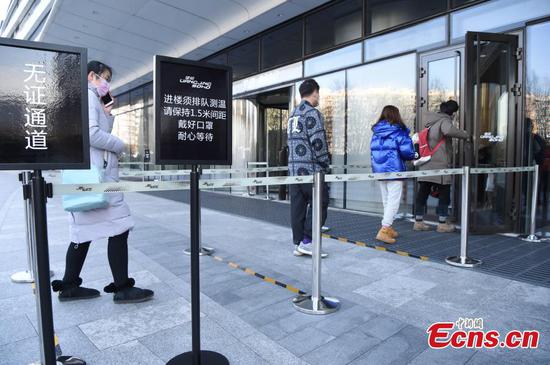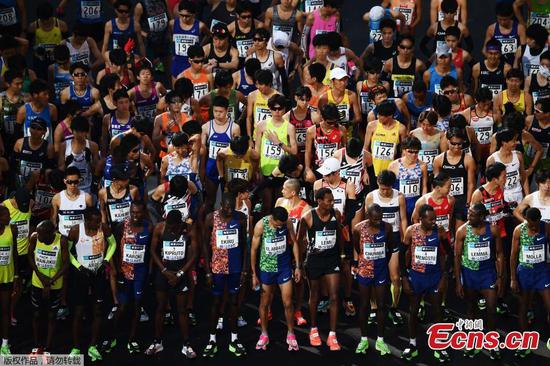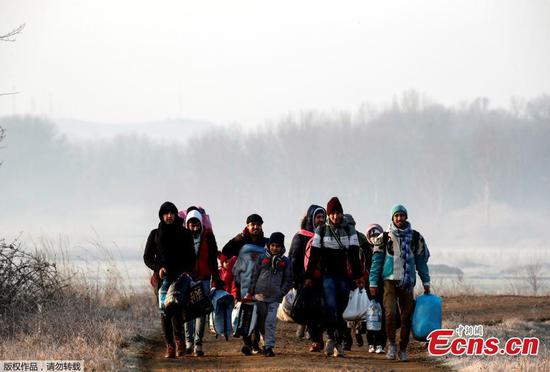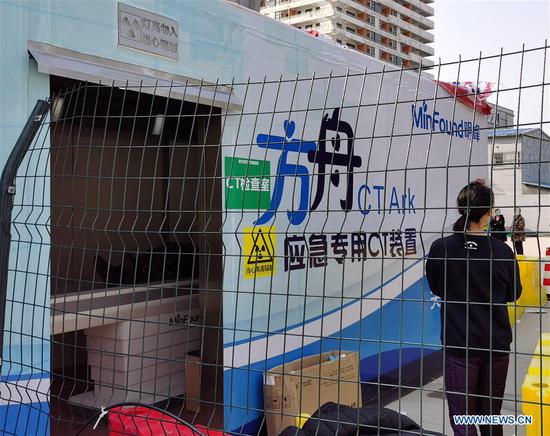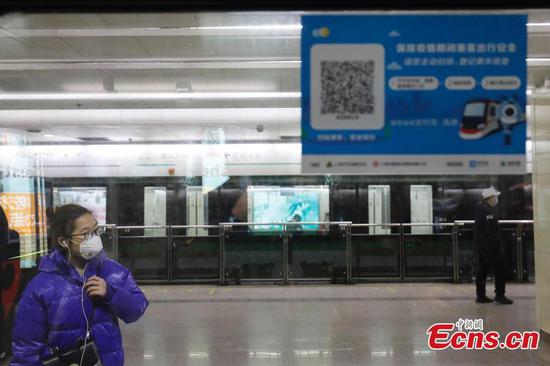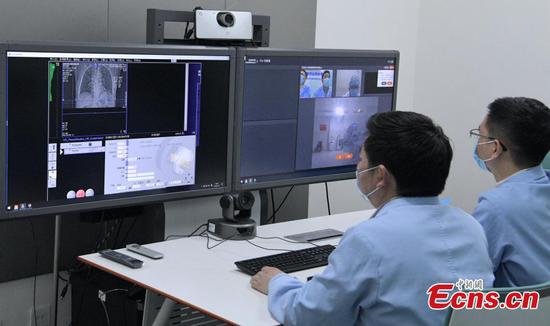The job market has been warming up as employees and employers feel more optimistic about the control of the novel coronavirus outbreak. Posts related to manufacturing, internet and foreign trade have seen growing demand, reports showed.
As China's epidemic control has shown a positive trend in the decline of confirmed infections, both employers and job seekers are restarting their employment plans.
The week-on-week growth of job vacancies reached 21.43 percent during Feb 24-28, while that of resume submission was about 35 percent, according to a report conducted by the online recruitment platform Zhaopin during the fourth week of February. The same data was 3.93 percent and 28 percent, respectively, during the third week.
"As cities accelerate to recover business operations and more professionals return to cities where they are working, the demand for both recruitment and job-hunting is growing," said Li Qiang, executive vice-president of Zhaopin.
About 65 percent of companies interviewed by Zhaopin have restarted operations by the end of February while 72.8 percent of migrant employees have returned, according to the report, which covered 9,038 questionnaires in 38 major cities across China.
"As the Chinese economy keeps stabilizing, more policies were released to spur employment, and more emerging industries are creating jobs, so the medium and long-term potential in the employment market will be enlarged," Li said.
The data has shown the recruitment market is recovering, and it will continue this trend in the following weeks, he said, adding this year's job-hunting peak is yet to come.
Manufacturing companies, which have been among the first to resume work during the outbreak, have seen a rising demand for workers, in order to increase production and ensure supply, the report showed. The foreign trade sector, though affected by the blocking of the global transportation network, has also been recovering, which suggests multinational enterprises have confidence in the Chinese market, Li added.
According to another report of Lagou, an online recruitment site for internet companies, 90 percent of over 200 companies interviewed said their spring recruitment plan was affected by the epidemic, but only 18 percent said they would cut job vacancies. About half said their demand for talent was still there, but was postponed by the outbreak.
Leading internet companies, as well as those involved in medical health, gaming, online education, short videos and e-commerce, showed growing demand for related human resources, said Bao Aile, founder and chief marketing officer of Lagou.
ByteDance, the owner of news aggregator Toutiao and video-sharing platform TikTok, announced it will offer 3,600 full-time jobs this spring, with all interviews to be done online. Meituan, an on-demand service platform, also initiated spring recruitment in late February with about 4,000 posts. Huawei said in its WeChat account that spring campus recruitment is still ongoing, but has been moved online.
Video interviews and online job fairs bring opportunities for job seekers. Reports by the life service platform 58 showed 70 percent of corporate human resources personnel had a positive attitude about video interviews.
"Non-face-to-face recruiting presentations, CV screening backed by artificial intelligence, online negotiation … such approaches will make the recruiting process more efficient and flexible," said Wang Xin, senior partner of the consultancy Roland Berger.










